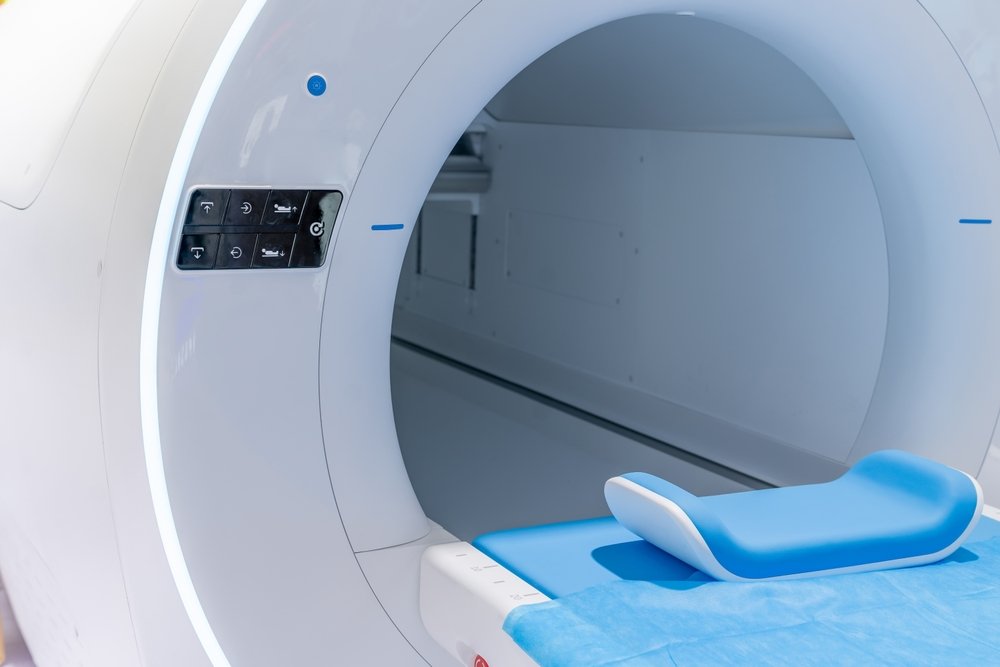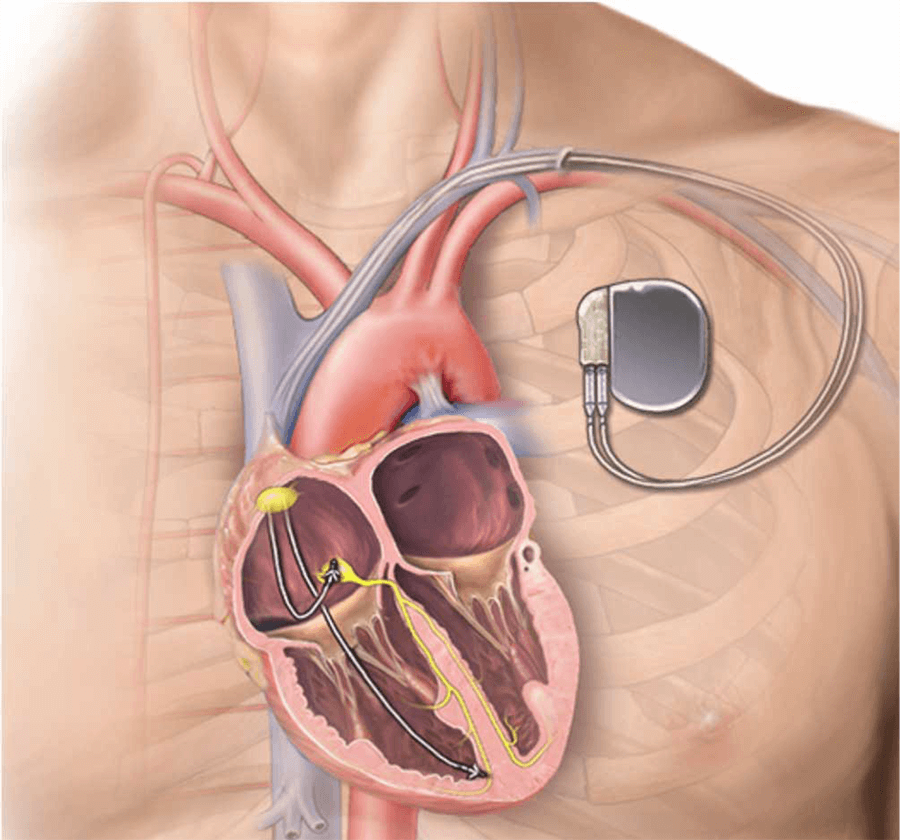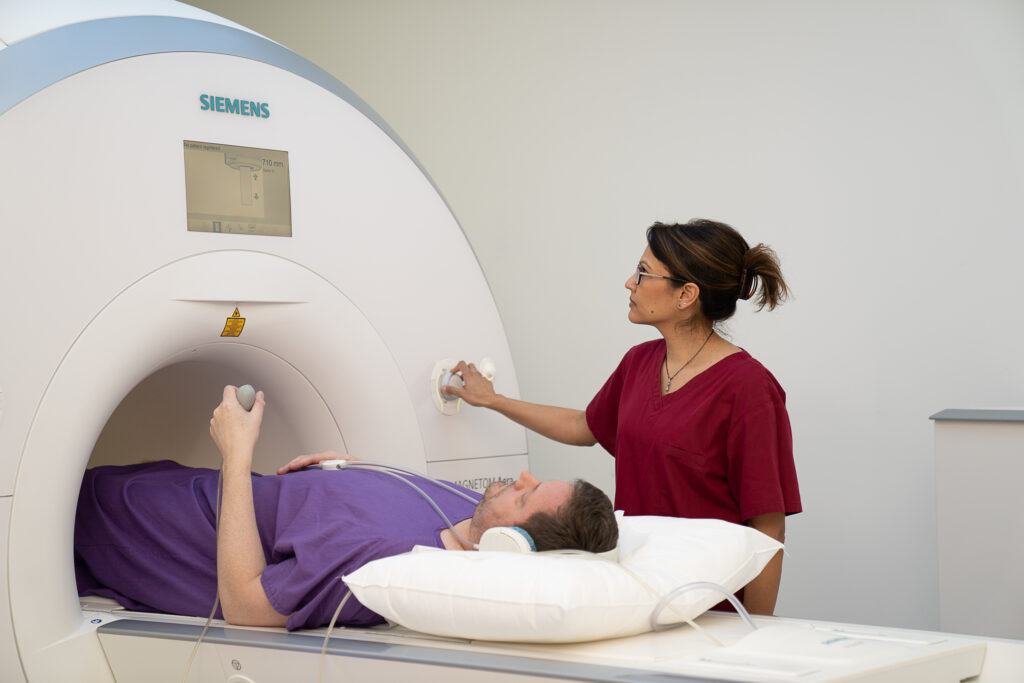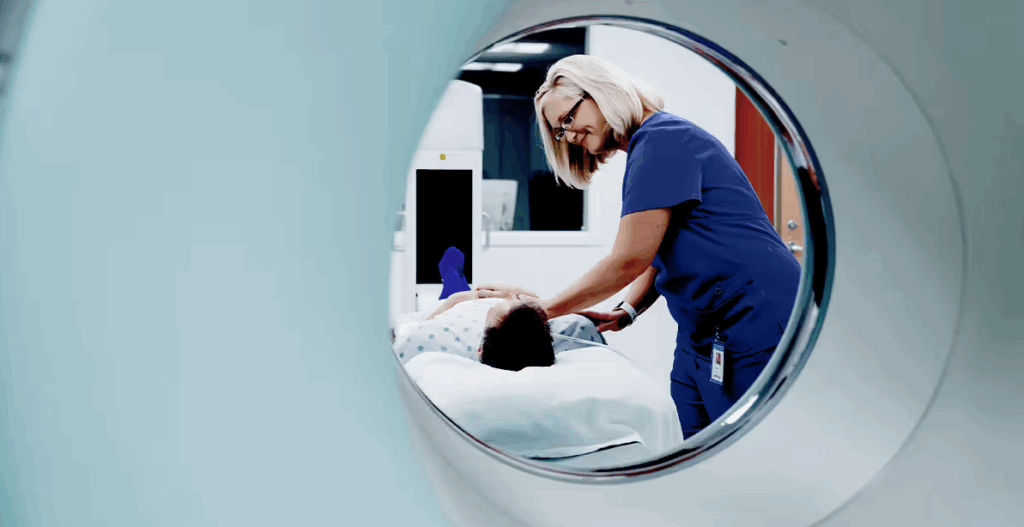If you have metal in your body or rely on a pacemaker to keep your heart beating properly, the thought of needing an MRI scan can feel scary. You might wonder if the powerful magnets will cause problems or even put your life at risk.

The good news? Most people with implants can safely get MRI scans, though it takes some extra planning.
The Real Story About Metal and MRI Machines
MRI machines use incredibly strong magnetic fields – much stronger than any magnet you’ve encountered in daily life. This magnetic power creates those detailed pictures doctors need to diagnose problems. When metal enters this magnetic field, things can get complicated.
Some metals react strongly to magnets (called ferromagnetic materials), while others barely respond at all. The type of metal in your body makes all the difference. Older implants often contained materials that don’t play well with MRI machines, but newer devices are typically designed with MRI safety in mind.
Pacemakers and MRI Scans
For decades, having a pacemaker meant you couldn’t get an MRI scan. Period. The magnetic fields could interfere with the device’s electronics, potentially stopping it from working or causing it to malfunction in dangerous ways.
Today’s reality looks much different. Many newer pacemakers are “MRI-conditional,” meaning they can safely go through MRI scans under specific conditions. Your cardiologist and the MRI team work together to temporarily adjust your pacemaker settings before and after the scan.

If you have an older pacemaker that isn’t MRI-compatible, doctors might still recommend the scan if the medical benefits outweigh the risks. In these cases, they’ll take extra precautions, like having cardiac specialists monitor you throughout the procedure.
Common Implants and MRI Safety
Joint Replacements Hip and knee replacements rarely cause problems during MRI scans. Modern joint implants use materials like titanium that don’t interfere with magnetic fields. You might experience some image distortion around the implant area, but the scan remains safe.
Dental Work Most dental fillings, crowns, and braces won’t prevent you from getting an MRI. However, they can create artifacts (bright spots or dark areas) on images of your head and neck. Your dentist can tell you exactly what materials are in your mouth if the MRI team needs to know.
Surgical Hardware Screws, plates, and rods used to repair broken bones are typically made from MRI-safe materials. The radiologist will review your surgical records to confirm the specific type of hardware you have.
Cochlear Implants These hearing devices require special attention. Some models are MRI-conditional, while others aren’t compatible at all. The MRI team will need detailed information about your specific implant model.
Before Your MRI: What Happens Next
Your doctor will review your medical history carefully, paying special attention to any surgeries or procedures you’ve had. They’ll want to know:
- When you received your implants
- What type of devices they are
- The manufacturer and model numbers
- Any documentation from your surgeries
If you have a pacemaker or other cardiac device, you’ll likely need clearance from your cardiologist first. They might schedule you for device checks before and after the MRI to make sure everything works properly.

Alternative Options When MRI Isn’t Possible
Sometimes, despite everyone’s best efforts, an MRI scan just isn’t safe for someone with certain implants. Fortunately, other imaging options can provide valuable information:
- CT scans use X-rays instead of magnets and work well for many conditions
- Ultrasound imaging can examine soft tissues without any magnetic fields
- Nuclear medicine scans can track how organs function
- Traditional X-rays remain useful for bone and joint problems
Your doctor will choose the best imaging method based on your specific medical needs and implant situation.
Living with Implants: Daily Life Considerations
While we’re talking about MRI safety, it’s worth mentioning that most implants don’t affect your daily activities. Airport security scanners won’t harm your pacemaker or joint replacement, though they might set off metal detectors. Most people carry a medical alert card explaining their implants.
Strong magnets in industrial settings or certain medical equipment can potentially affect some implants, but typical household items pose no risk. Your implant manufacturer provides specific guidelines about what to avoid.
Frequently Asked Questions
Will my hip replacement be pulled out during an MRI scan?
No. Modern hip replacements use materials that don’t react strongly to magnets. The implant stays firmly in place during the scan, though it might create some image distortion in the immediate area.
How do doctors know if my pacemaker is MRI-safe?
They check the manufacturer’s database using your device’s model number and serial number. This information tells them exactly what conditions are safe for scanning, if any.
Can I get an MRI if I’m not sure what type of implant I have?
The medical team will need to identify your implant before proceeding. They might review old medical records, contact your surgeon, or use X-rays to help identify the device.

Do tattoos affect MRI scans?
Most tattoos don’t cause problems, but some older tattoos with metallic inks might cause mild skin warming or tingling. Let the MRI staff know about any tattoos before your scan.
What if I need an emergency MRI and don’t have time to check my implant compatibility?
Emergency situations require quick decision-making. Doctors weigh the immediate medical need against potential risks and might proceed with extra monitoring if the scan could save your life.
How long does it take to prepare for an MRI when you have a pacemaker?
Preparation can take several days to weeks. Your cardiologist needs to review your device, possibly reprogram it, and coordinate with the MRI facility. The actual scan preparation adds about 30-60 minutes to your appointment.
Are there any implants that absolutely cannot have MRI scans?
Very few implants are completely incompatible with MRI, but some older devices, certain types of aneurysm clips, and specific cochlear implant models may not be safe for scanning.
Will I feel anything different during the MRI if I have metal implants?
Most people don’t feel anything unusual. Some might notice slight warming around the implant area, which is normal and not dangerous.
The Bottom Line
Medical technology keeps improving, making MRI scans safer for more people with implants each year. The absolute ban on MRI scans for pacemaker patients has evolved into careful, individualized decision-making. Most people with metal implants can safely undergo MRI scanning with proper preparation and precautions.
Don’t let fear of your implants prevent you from getting necessary medical imaging. Work with your healthcare team to explore your options and make the best decision for your health.
